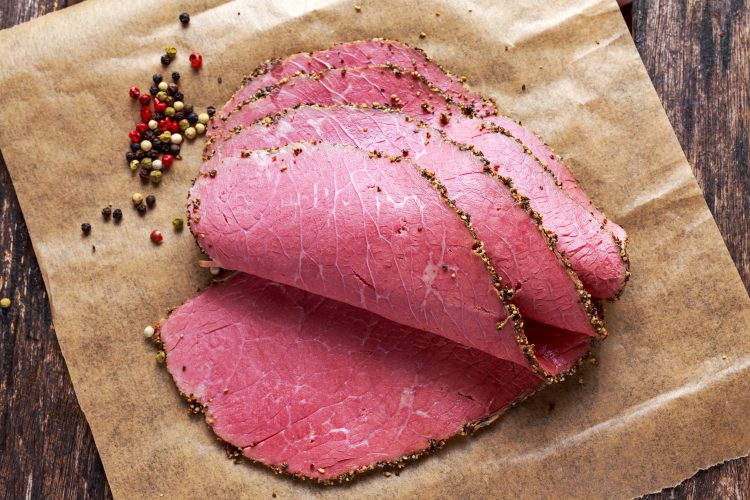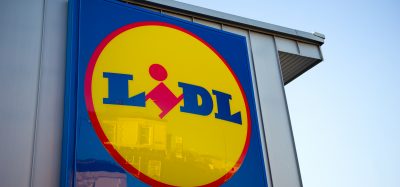Is “British” beef fraud “the tip of an ugly iceberg”?
- Like
- Digg
- Del
- Tumblr
- VKontakte
- Buffer
- Love This
- Odnoklassniki
- Meneame
- Blogger
- Amazon
- Yahoo Mail
- Gmail
- AOL
- Newsvine
- HackerNews
- Evernote
- MySpace
- Mail.ru
- Viadeo
- Line
- Comments
- Yummly
- SMS
- Viber
- Telegram
- Subscribe
- Skype
- Facebook Messenger
- Kakao
- LiveJournal
- Yammer
- Edgar
- Fintel
- Mix
- Instapaper
- Copy Link
Posted: 10 March 2023 | Grace Galler | No comments yet
After reports emerged that an investigation is underway into supermarket-sold beef that is allegedly falsely labelled as British, are we looking at “the start of another large food fraud scandal?


According to reports, the National Food Crime Unit (NFCU) is currently investigating a food fraud incident involving a UK retailer selling beef labelled as “British” that is actually from Europe and South America.
The BBC has said that the supermarket in question has been “forced” to remove the pre-packaged sliced beef from stores that is labelled with the words “best British beef”.
Deputy Chief of the National Food Crime Unit Andrew Quinn told the BBC: “The retailer was notified on the same day that we took action against the food business suspected of the fraud and immediately removed all affected products from their shelves.
“The retailer continues to work closely and cooperatively with the NFCU investigation to progress the case against the supplier. This is not a food safety issue but a matter of food fraud.”
Although the name of the supermarket in question has not yet been announced, the BBC said it has asked numerous UK supermarkets (including Sainsbury’s, Tesco, Lidl, Aldi, Asda, the Co-op, Waitrose, Iceland, Morrisons and Marks & Spencer), all of which reportedly told it that they “are not the retailer that had been supplied with the beef”.
The investigation, carried out by the NFCU, was originally published in December 2021 for public viewing under the codename “Operation Hawk”. This Operation was committed to “exploring the large-scale misrepresentation of country of origin on packed meat products”.
Providing investigation updates in November 2022, the FSA said that Operation Hawk advanced to “an investigation into the directors of a company responsible for selling large volumes of pre-packed meat products to a UK supermarket retailer, who pride themselves on only selling British products.”
As of November 2022, the FSA stated that the investigation has had to prioritise a review of “circa 1.3 million documents”, however on 9 March 2023 Farmers Weekly revealed that trade associations told it that the “meat” involved was beef.
From the horse’s mouth: three steps forward and one leap back
Commenting on food traceability, Minette Batters, President of the National Farmers’ Union (NFU), said: “Food security isn’t just about supply and availability. It also means ensuring our food is fully traceable, safe to eat, and that it adheres to our high animal welfare and environmental standards.”
Also speaking on the food fraud incident, Chris Elliot, Professor of Food Safety at Queens University Belfast, told New Food: “Many journalists are trying to identify which retailer has been implicated in the fraud. A more important and pressing question is who supplied the beef in the first place [as they are] likely the same company that supply many other retail and food service outlets”.
Stating that the news may be the “tip of an ugly iceberg”, Elliott questioned: “Who else has the meat company supplied with falsely labelled beef? How long as this been going on for? How did this get into the country?”
“All food businesses, large and small need to be vigilant, understand the supply chains that they are sourcing from, and never buy something that looks too good to be true.”
Summarising the incident as the latest food fraud “scandal”, Elliot concluded that it is “a blow for many food companies that have worked so hard to make sure what they sell is genuine.”
Although the food fraud incident is making headlines, Quinn said that “any fraud investigations of this nature take time to go through evidence and bring to any outcome, including any potential prosecution”.
However, he noted that the NFCU takes food fraud “very seriously” and is “acting urgently to protect the consumer”.
New Food will bring its readers the latest updates on this food fraud incident.
Related topics
Food Fraud, Food Safety, Outbreaks & product recalls, recalls, Recruitment & workforce, Regulation & Legislation, retail, Supermarket, Supply chain, Trade & Economy
Related organisations
BBC, Farmers Weekly, Food Standards Agency, National Food Crime Unit, Queen's University Belfast









